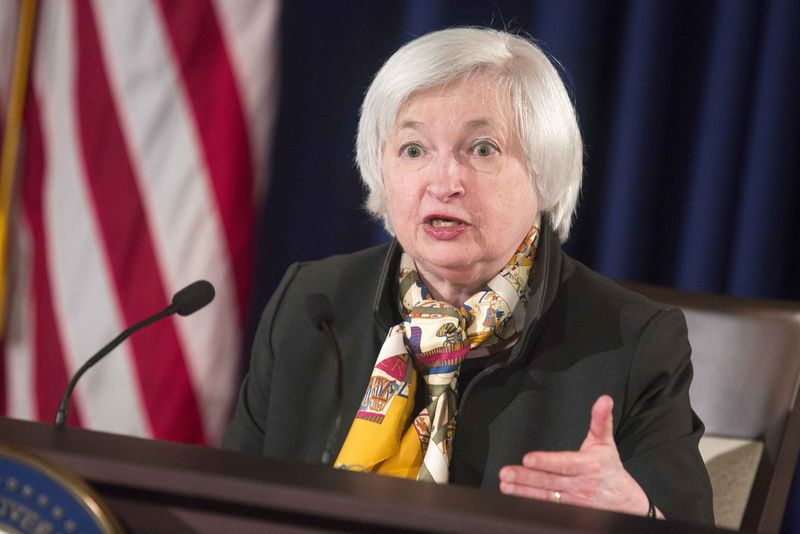(Bloomberg Opinion) -- Janet Yellen, President-elect Joe Biden’s reported pick as Treasury secretary, is surely one of the most qualified nominees for the job in history. Not only has she been chair of the Federal Reserve and the White House Council of Economic Advisers, but she also enjoys widespread bipartisan respect, which will benefit her in coming negotiations over Covid relief. The markets are right to be impressed.
At the same time: Her priorities in her previous jobs will not carry over, nor should they, to her next one. Yellen has been less concerned with full employment, and more with the long-term debt, than is ideal right now. She might shift the conversation in Washington in unhelpful ways.
In her term as Fed chair, Yellen was notably dovish — that is, reluctant to raise interest rates — relative to the academic consensus. She gets credit for that, but since then it has become clear that this consensus was even more wrong than previously thought.
Unlike her successor Jerome Powell, Yellen was too hesitant to question its fundamental assumptions. Specifically, economists in 2014 and ’15 began to argue that the percentage of U.S. adults in the labor force (either working or looking for work) was on a downward trajectory that couldn’t be reversed simply by trying to grow the economy faster through fiscal or monetary policy.
Yellen agreed with this framework, and that helps explain why she began raising interest rates in 2015. Instability in the currency markets forced her to pause, but she didn’t abandon the core thesis and raised interest rates again in 2016. That hike led to a micro-recession that may very well have cost Hillary Clinton the presidency.
Even still, Yellen remained reluctant to abandon the framework. As late as 2017, she argued that the labor market did not show evidence of substantial slack and that the decline in overall employment was due to permanently reduced opportunities for low-skilled men. (To be fair, this was a popular explanation at the time.)
A chorus of commentators, myself included, pushed back, arguing that by running the economy hot, it was possible to draw people back into the workforce. Powell and the Trump administration took these criticisms to heart, producing the strongest economy for workers since at least the 1990s.
Yellen has also repeatedly raised alarms about America’s long-term debt, including as recently as a February. This is despite an emerging awareness among economists that the dangers of the debt are likely overblown and that the Congressional Budget Office forecasts, on which Yellen leaned, have repeatedly overestimated long-term interest rates and therefore the burden of the federal debt on the economy.
These misjudgments alone do not disqualify Yellen. But they do raise concerns that she could shift the debate prematurely toward deficit reduction and away from increasing employment. This is precisely the mistake made during Barack Obama’s presidency.
To make matters worse, the dynamics of debt reduction lead politicians on both sides of the aisle toward stalemate and gridlock. Negotiations center around which side will have to endure the most pain, and no one wants to be the first to give in. By contrast, increasing employment requires cutting taxes and raising spending. That’s a conversation politicians are eager to have.
Part of the promise of the Biden administration is that his penchant for horse-trading will allow him to steer Congress toward a legislatively productive and economically beneficial focus on employment. That will be a hard enough challenge on its own. One can only hope that, despite her previous policy leanings, Yellen doesn’t make it any harder.
This column does not necessarily reflect the opinion of the editorial board or Bloomberg LP and its owners.
Karl W. Smith is a Bloomberg Opinion columnist. He was formerly vice president for federal policy at the Tax Foundation and assistant professor of economics at the University of North Carolina. He is also co-founder of the economics blog Modeled Behavior.
